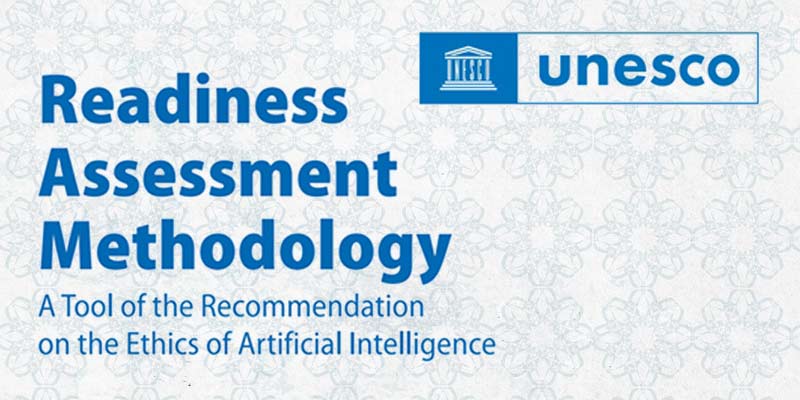- India
- Jan 22
UNESCO’s AI Readiness Assessment Methodology (RAM)
• The UNESCO Regional Office for South Asia, in collaboration with the Ministry of Electronics and Information Technology (MeitY) and Ikigai Law as the implementing partner, organised a two-day stakeholder consultation on AI Readiness Assessment Methodology (RAM) in India.
• The event was held at IIIT Bangalore and the Nasscom AI office.
• Participants provided valuable inputs, shaping the foundation for India’s AI policy roadmap.
• This consultation marked the second in a series of five consultations under the AI RAM initiative by UNESCO and MeitY.
The need for global standard on AI ethics
• With its unique mandate, UNESCO has led the international effort to ensure that science and technology develop with strong ethical guardrails for decades.
• Be it genetic research, climate change, or scientific research, UNESCO has delivered global standards to maximize the benefits of the scientific discoveries, while minimising the downside risks, ensuring they contribute to a more inclusive, sustainable, and peaceful world.
• It has also identified frontier challenges in areas such as the ethics of neurotechnology, on climate engineering, and the internet of things.
• The rapid rise in artificial intelligence (AI) has created many opportunities globally, from facilitating healthcare diagnoses to enabling human connections through social media and creating labour efficiencies through automated tasks.
• However, these rapid changes also raise profound ethical concerns. These arise from the potential AI systems have to embed biases, contribute to climate degradation, threaten human rights and more.
• Such risks associated with AI have already begun to compound on top of existing inequalities, resulting in further harm to already marginalised groups.
• In no other field is the ethical compass more relevant than in artificial intelligence. These general-purpose technologies are re-shaping the way we work, interact, and live. The world is set to change at a pace not seen since the deployment of the printing press six centuries ago.
• AI technology brings major benefits in many areas, but without the ethical guardrails, it risks reproducing real world biases and discrimination, fueling divisions and threatening fundamental human rights and freedoms.
• UNESCO produced the first-ever global standard on AI ethics – the ‘Recommendation on the Ethics of Artificial Intelligence’ in November 2021. It is applicable to all 194 member states of UNESCO.
• The Recommendation serves as a comprehensive and actionable framework for the ethical development and use of AI, encompassing the full spectrum of human rights.
• It does so by maintaining focus on all stages of the AI system lifecycle.
Readiness Assessment Methodology (RAM)
• The Recommendation mandated the development of two key tools which form the core pillars of the implementation.
They are:
i) the Readiness Assessment Methodology (RAM)
ii) the Ethical Impact Assessment (EIA).
• By providing detailed and comprehensive insights into different dimensions of AI readiness, RAM helps highlight any institutional and regulatory gaps and enables UNESCO to tailor support for governments to fill those gaps, in order to ensure an ethical AI ecosystem in line with the Recommendation.
• The Readiness Assessment Methodology (RAM) includes a range of quantitative and qualitative questions designed to gather information about different dimensions related to a country’s AI ecosystem.
They are:
i) Legal and regulatory
ii) Social and cultural
iii) Economic
iv) Scientific and educational
v) Technological and infrastructural dimensions.
• Each dimension features a series of quantitative and qualitative assessment questions, setting the RAM apart from other existing readiness assessment tools.
Implementation of the RAM
• The implementation of the RAM is adapted to the unique circumstances and characteristics of the country, as well as the budget available for the project.
• The RAM is carried out by an independent consultant or research organisation, supported by a national team comprising a variety of stakeholders, such as personnel from the UNESCO Secretariat and UNESCO National Commission, as well as representatives from the country’s government, the academic community, civil society and the private sector, among others.
• The final output of the assessment will entail a country report that provides a comprehensive overview of the status of the readiness in the country, summarising where the country stands on each dimension, detailing ongoing initiatives, and summing up the state of the art, and providing concrete policy recommendations on how to address governance gaps.
Manorama Yearbook app is now available on Google Play Store and iOS App Store

